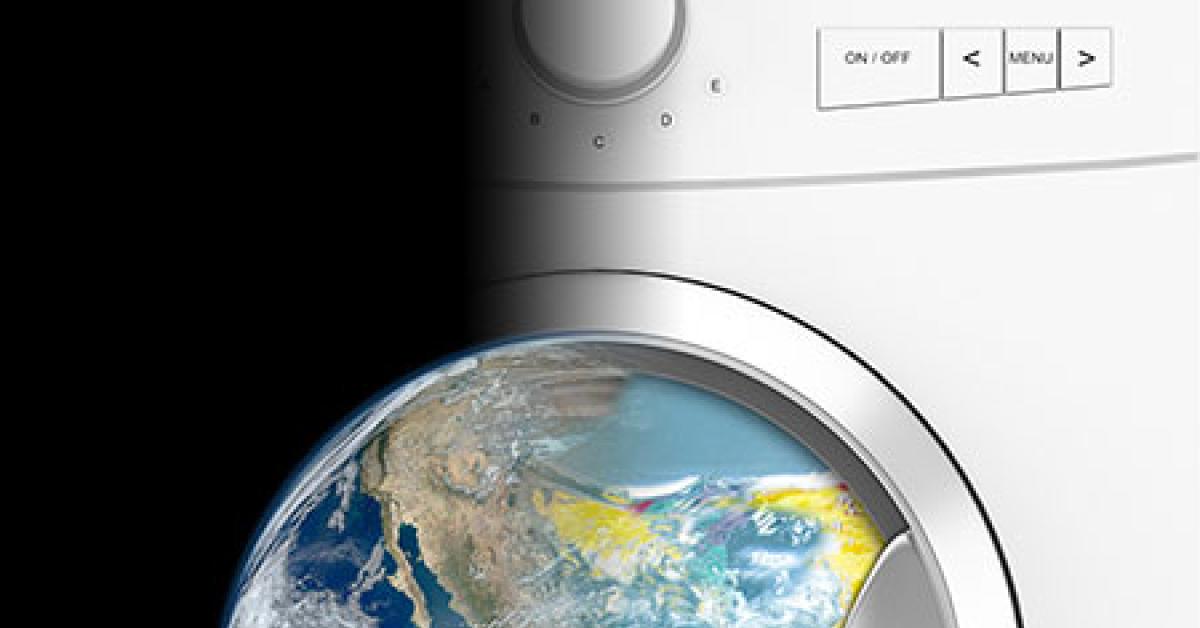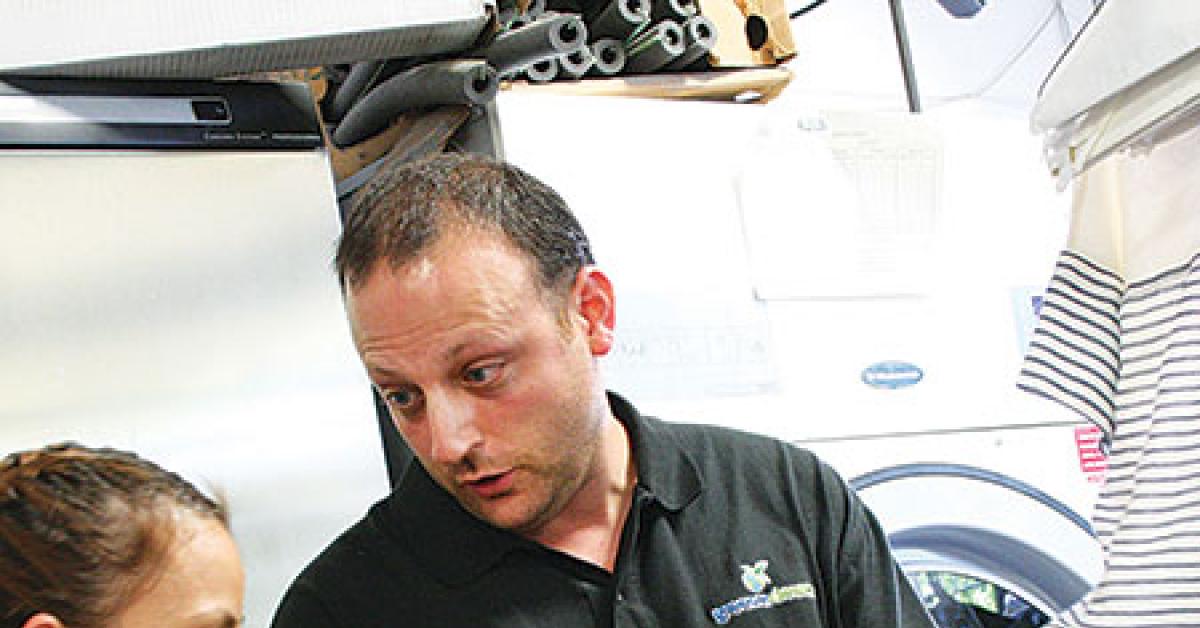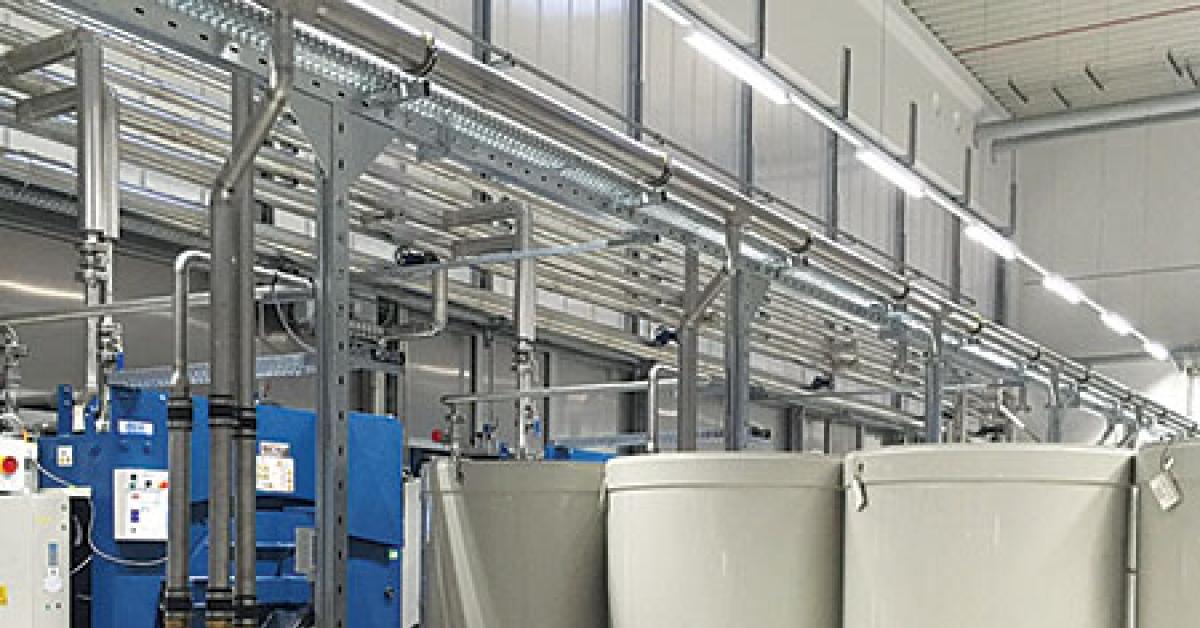CHICAGO — Water is life.
How we manage it defines us economically and socially. In the world of fabricare and garment cleaning, it’s nothing short of elemental.
Rob Walker, president of Max I. Walker in Omaha, Neb., runs 26 locations in his operation, two central plant laundries, four package plant shirt laundries, and also a uniform rental operation running 12 routes.
“In our drycleaning operation, we try to use wash formulas that reduce the amount of water needed in the wheel for laundered shirts,” says Walker. “Also, cooling towers are used for hydrocarbon cleaning machines, reducing the amount of city water used for cooling.”
The drought in the western United States has elevated awareness about water management. If you live or travel there, you know all about water-use restrictions, low-flow devices, and the need to change basic habits once taken for granted such as drinking water, showering, doing dishes—and fabricare.
The state of affairs in the area of water conservation for Walker’s midwestern region of the United States is not as critical as California or Arizona, he points out.
“But that doesn’t mean we don’t look at all areas that we can, to save water in our operation. This is very critical in our uniform rental operation, as we use large amounts of water and incur sewer surcharges based on usage,” says Walker.
“This area of our business is where we see the most investment in technology and equipment being made because of the volume of water being used,” he adds.
Mike Bleier is the owner of Drive Cleaning and Greener Cleaner, a Chicago-area five-store operation, in business for more than 20 years.
“In Illinois, we don’t have the issue with water restrictions but we take water seriously,” says Bleier, who notes that his company is “water-responsible all the time.”
According to Bleier’s website, the company is the first 100% wet cleaner in the United States, starting in 1995.
“We take our water used for cooling our drycleaning machines, which has been heated through use, and we put it back into our laundry machines for reuse, thus saving money by conserving water,” Bleier explains.
Clean water is everyone’s responsibility — citizens and businesses alike.
Environmental Protection Agency (EPA) regulations are only one part of the picture. Publicly Owned Treatment Works (POTW) are another part. Changes to the drycleaning and fabricare industry, such as the emphasis on wet cleaning and wash and fold, are still another part of the story.
In answer to a question about water conservation challenges today, Walker indicates, “As the market demands more wet washing, things will change. You are already seeing this in the home washer market with new water-saving technology.”
Regarding testing, “on the uniform side, local POTW inspectors do on-site sampling twice a year, pulling hourly wastewater samples each hour for 24 hours, seven days in a row.”
Testing to meet regs is just one part of a large “watershed” issue for the fabricare industry. Water and energy costs, along with water reuse, are part of an operator’s daily dialogue now.
WATER UP
Kevin Minissian is CEO of Los Angeles-based Norchem Corp., a clean tech engineering company that offers water conservation solutions and green laundry chemistry to the fabricare market, according to the company’s website.
About challenges ahead, he notes that “as the fabricare industry continues to be one of the most significant users of water, dry cleaners, although not the greatest users in the category, are now starting to witness hikes in water and sewer costs,” says Minissian.
“As more and more dry cleaners convert to wet wash,” he continues, “increased cost of water and sewer will increase sewer impact fees and show under city POTW radar.”
Speaking about water conservation, the rising costs play a role but so do other factors such as water safety and treatment.
Over the past 12 years, notes Minissian, “the minimum bill for water customers has increased at a rate of 5.6% while the corresponding sewer bill has increased more than 20.1%, according to a report released by Black & Veatch.” Black & Veatch is a global engineering and consulting firm that publishes its own water industry report.
“Rising commodity prices of electricity, chemicals and fuel have increased the cost of transporting water and heating it,” says Minissian.
“Lack of capital funding has led to more utilities raising prices for water so they can afford to update their treatment facilities. Aging infrastructure needs preventative maintenance, thus utilities are charging more to have funds available for such investments.”
Global recognition of the value of water security and the concern over wastewater pollution has sparked interest in water conservation methodologies, Minissian explains.
“Government regulations,” he points out, “and incentive programs offered by state water suppliers are key influencers in helping drive capital investment in water treatment and reuse.”
Regulations on wastewater content are tightening everywhere and the local municipalities are the ones enforcing them, Minissian says.
EPA’s Clean Water Act (CWA) of the 1970s is the main regulation all cities and counties follow. “All POTW inspect and regulate the discharge limits and collect sewer charges,” he adds.
We all understand the need for clean water. It’s life’s most precious thing. Business has evolved an eco-friendly position. Conservation concerns are identifiable. But what about the specific solutions?
Check back Thursday for the conclusion.
Have a question or comment? E-mail our editor Dave Davis at [email protected].



